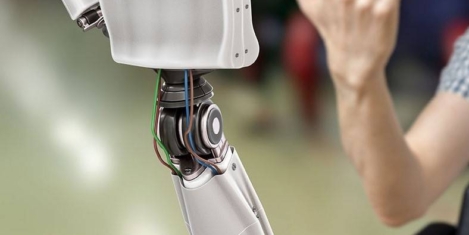To provide the best experiences, we use technologies like cookies to store and/or access device information. Consenting to these technologies will allow us to process data such as browsing behaviour or unique IDs on this site. Not consenting or withdrawing consent, may adversely affect certain features and functions.
The technical storage or access is strictly necessary for the legitimate purpose of enabling the use of a specific service explicitly requested by the subscriber or user, or for the sole purpose of carrying out the transmission of a communication over an electronic communications network.
The technical storage or access is necessary for the legitimate purpose of storing preferences that are not requested by the subscriber or user.
The technical storage or access that is used exclusively for statistical purposes.
The technical storage or access that is used exclusively for anonymous statistical purposes. Without a subpoena, voluntary compliance on the part of your Internet Service Provider, or additional records from a third party, information stored or retrieved for this purpose alone cannot usually be used to identify you.
The technical storage or access is required to create user profiles to send advertising, or to track the user on a website or across several websites for similar marketing purposes.
 The Good Life Report, a study by AXA Business Insurance into Britain’s boom in self-employment, claims that tradespeople have better than average mental health but their work style brings increased physical risks, particularly high blood pressure. According to the AXA study of self-employed people, those in the building trades report the best mental wellbeing. Just eight per cent say their work causes them stress – four times lower stress rate than among UK workers overall, and half the stress rate for self-employed people in desk-based jobs.
The Good Life Report, a study by AXA Business Insurance into Britain’s boom in self-employment, claims that tradespeople have better than average mental health but their work style brings increased physical risks, particularly high blood pressure. According to the AXA study of self-employed people, those in the building trades report the best mental wellbeing. Just eight per cent say their work causes them stress – four times lower stress rate than among UK workers overall, and half the stress rate for self-employed people in desk-based jobs.







 A major research study “
A major research study “








 More than half of working adults believe that UK businesses are not doing enough to support the physical and mental wellbeing of their employees. The vast majority (86 percent) believe that firms are specifically not doing enough to help employees deal with work-related stress, anxiety and other mental health issues. And with seven out of 10 of those surveyed by
More than half of working adults believe that UK businesses are not doing enough to support the physical and mental wellbeing of their employees. The vast majority (86 percent) believe that firms are specifically not doing enough to help employees deal with work-related stress, anxiety and other mental health issues. And with seven out of 10 of those surveyed by 
 The mental health of employees, especially those working within high pressured working environments are the number one concerns for UK CEOs. Nearly three quarters (73 percent) of respondents to the annual wellbeing report ‘
The mental health of employees, especially those working within high pressured working environments are the number one concerns for UK CEOs. Nearly three quarters (73 percent) of respondents to the annual wellbeing report ‘











June 21, 2018
The hype surrounding wellbeing concepts can blind us to their true value
by Georgia Elliott-Smith • Comment, Wellbeing
(more…)